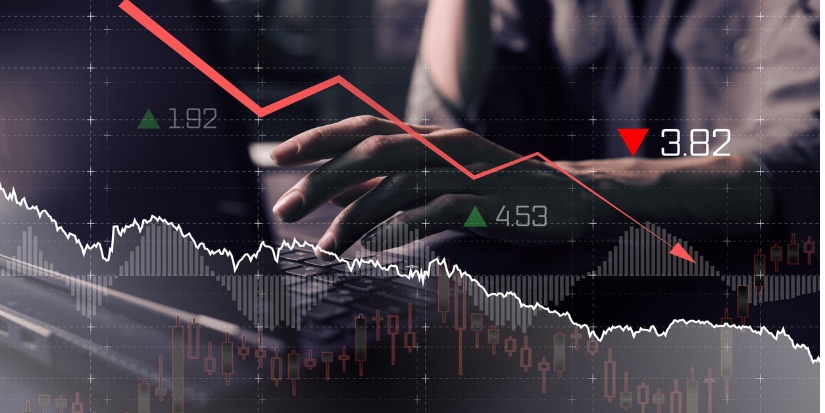
How Are You Feeling?
-
 Jared Dillian
Jared Dillian
- |
- July 14, 2022
- |
- Comments
Trading might be the most introspective discipline there is. You have to spend a lot of time thinking. And you have to spend a lot of time thinking about thinking. And you have to spend a lot of time thinking about thinking about how you feel. And your feelings. And your emotions. And above all that, about seventeen levels of poker and game theory.
Trading is a mental game far more complex than any sport or athletic activity. This is why high-IQ people tend to succeed, but the ones who lack introspection don’t.
I do not have the highest IQ in finance, but I am more introspective than most. And usually, when I get myself in trouble in the markets, it’s because I stopped being introspective and let my emotions take over. I didn’t take the time to look for the exits. I became sure that a trade would work, rather than looking at it probabilistically. I have made those mistakes numerous times in my career, in various incarnations. But it usually comes down to one thing—not enough introspection. Not looking deep enough into my soul. And the thing is, the right course of action was always obvious in hindsight.
|
Start building real wealth NOW with Jared Dillian’s Strategic Portfolio. This “done for you” investment portfolio is ready to go—you could be invested as early as tomorrow! Take the stress out of investing—find out more by clicking here. |
I have also found that I get in trouble when I don’t listen to my instincts. Some of my best trades happen when I’m watching the screens and I see something—and I pick up the phone and make a trade immediately. It is when I talk myself out of my instincts and over-intellectualize that things go wrong.
Of course, some people have bad instincts. In fact, most people do. Most people get bullish on the highs and bearish on the lows. In that case, they should over-intellectualize things.
Wall Street Story
Back when I had just started doing index arbitrage, I was doing it on the NDX, the Nasdaq-100 futures. I noticed that when economic data was released in the middle of the day, like the ISM at 10 am (it was called the NAPM back then), if the number diverged sharply from expectations, the market would gap higher or lower. I sat with my finger on the button of the program trading terminal, and if the number came in really high, I would send a buy basket, and then trade out of the futures a couple of minutes later.
This would be impossible these days for a couple of reasons. First of all, computers are programmed to trade these numbers in microseconds—no human being is fast enough to do it. Also, there is much more game theory about good news being bad news and all that stuff, so it’s not clear what kind of reaction there would be to any particular piece of economic data. But back then, things were pretty simple.
So, the first time I did this—I launched a basket of Nasdaq-100 stocks right after an ISM number, and waited, and waited… and sold the futures at the top of the move. Keep in mind, I had been trading for less than a month, and somehow, I had the feel of the market down perfectly.
From that point on, I was hooked. Trading involves a lot of ups and downs—some of the highest highs and the lowest lows. And when you’re trading in the futures market, it really is a zero-sum game. If you’re making money, someone else is losing money. You’re literally sucking money out of the market. You’re outsmarting other people. There is no greater occasion to feel smug.
Don’t Get Smug
Smug is the most dangerous emotion in trading. You put on a trade, it goes your way, it continues to go your way, and you are sitting on a mountain of profits. You feel pretty smart. At this point, you are sitting on a pile of capital gains and you lose focus. You might think, “I’ve made $300,000 on this trade, so if I give back some, it’s not a big deal. I’m up 100%, but even if it retraces, I’ll still be up 50%.”
Yes, but you can’t eat percentage returns, and you just lost $150,000. The goal here is to keep the same focus you had at the beginning of the trade and be stingy about losses. A lot of people are experiencing this right now—they were long Tesla (TSLA) or the ARK Innovation ETF (ARKK) or something similar, got smug and complacent, and now they have given back all the gains and then some.
In a long bull market, it becomes very difficult to take profits—you think it is going to go on forever. I am a big proponent of taking profits—not everything is for the long term. Remember: you can always buy back later. And if not, you just move on to the next trade. There are thousands of them out there.
The psychology of trading is an internal battle to manage your emotions. We all go through it every day. The best trader I have ever met is Mark Minervini. He’s just not an emotional guy—not in real life, either. The guy is a machine. I’m not like that. I have all sorts of emotions, and rather than trying to eliminate them, I try to manage them and use them in my favor. But it requires a great deal of introspection. Thinking about thinking about what you are feeling. The least introspective people always lose.
New Music
I know some of you are big fans of my music—you’re in luck this week. Here’s what might be my second-best DJ set ever, called Voyeurism. Please check it out.

Jared Dillian
subscribers@mauldineconomics.com

 Jared Dillian
Jared Dillian